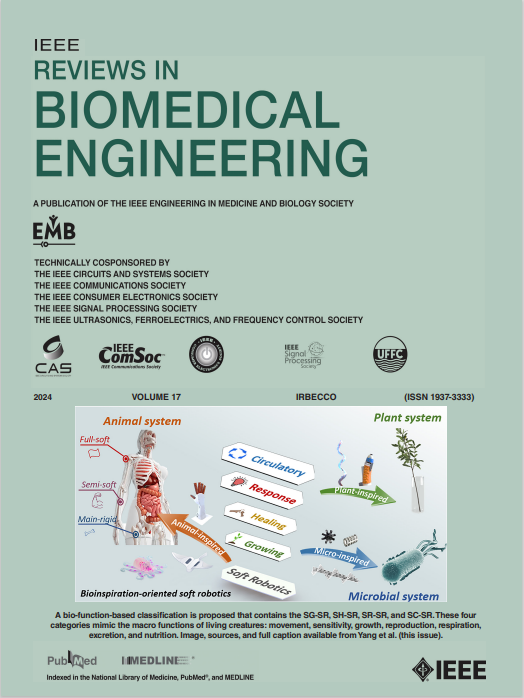利用先进的人工智能将多组学数据与EHR集成用于精准医学。
IF 17.2
1区 工程技术
Q1 ENGINEERING, BIOMEDICAL
引用次数: 0
摘要
随着高通量测序和可穿戴设备等新型生物医学技术的最新进展,从多组学分子数据到实时连续生物信号的多模态生物医学数据每天都以前所未有的速度和规模生成。这些多模态生物医学数据首次能够使精确医学接近现实。然而,由于数据量和复杂性,要充分利用这些多模态生物医学数据需要付出巨大努力。研究人员和临床医生正在积极开发人工智能(AI)方法,用于使用各种生物医学数据模式进行数据驱动的知识发现和因果推断。这些基于人工智能的方法在各种生物医学和医疗保健应用中显示出了有希望的结果。在这篇综述文章中,我们总结了最先进的人工智能模型,用于集成多组学数据和电子健康记录(EHR),用于精准医疗。我们讨论了将多组学数据与EHR整合的挑战和机遇以及未来的方向。我们希望这篇综述能启发未来将多组学数据与EHR整合用于精准医学的研究和开发。本文章由计算机程序翻译,如有差异,请以英文原文为准。
Integrating Multi-Omics Data With EHR for Precision Medicine Using Advanced Artificial Intelligence
With the recent advancement of novel biomedical technologies such as high-throughput sequencing and wearable devices, multi-modal biomedical data ranging from multi-omics molecular data to real-time continuous bio-signals are generated at an unprecedented speed and scale every day. For the first time, these multi-modal biomedical data are able to make precision medicine close to a reality. However, due to data volume and the complexity, making good use of these multi-modal biomedical data requires major effort. Researchers and clinicians are actively developing artificial intelligence (AI) approaches for data-driven knowledge discovery and causal inference using a variety of biomedical data modalities. These AI-based approaches have demonstrated promising results in various biomedical and healthcare applications. In this review paper, we summarize the state-of-the-art AI models for integrating multi-omics data and electronic health records (EHRs) for precision medicine. We discuss the challenges and opportunities in integrating multi-omics data with EHRs and future directions. We hope this review can inspire future research and developing in integrating multi-omics data with EHRs for precision medicine.
求助全文
通过发布文献求助,成功后即可免费获取论文全文。
去求助
来源期刊

IEEE Reviews in Biomedical Engineering
Engineering-Biomedical Engineering
CiteScore
31.70
自引率
0.60%
发文量
93
期刊介绍:
IEEE Reviews in Biomedical Engineering (RBME) serves as a platform to review the state-of-the-art and trends in the interdisciplinary field of biomedical engineering, which encompasses engineering, life sciences, and medicine. The journal aims to consolidate research and reviews for members of all IEEE societies interested in biomedical engineering. Recognizing the demand for comprehensive reviews among authors of various IEEE journals, RBME addresses this need by receiving, reviewing, and publishing scholarly works under one umbrella. It covers a broad spectrum, from historical to modern developments in biomedical engineering and the integration of technologies from various IEEE societies into the life sciences and medicine.
 求助内容:
求助内容: 应助结果提醒方式:
应助结果提醒方式:


